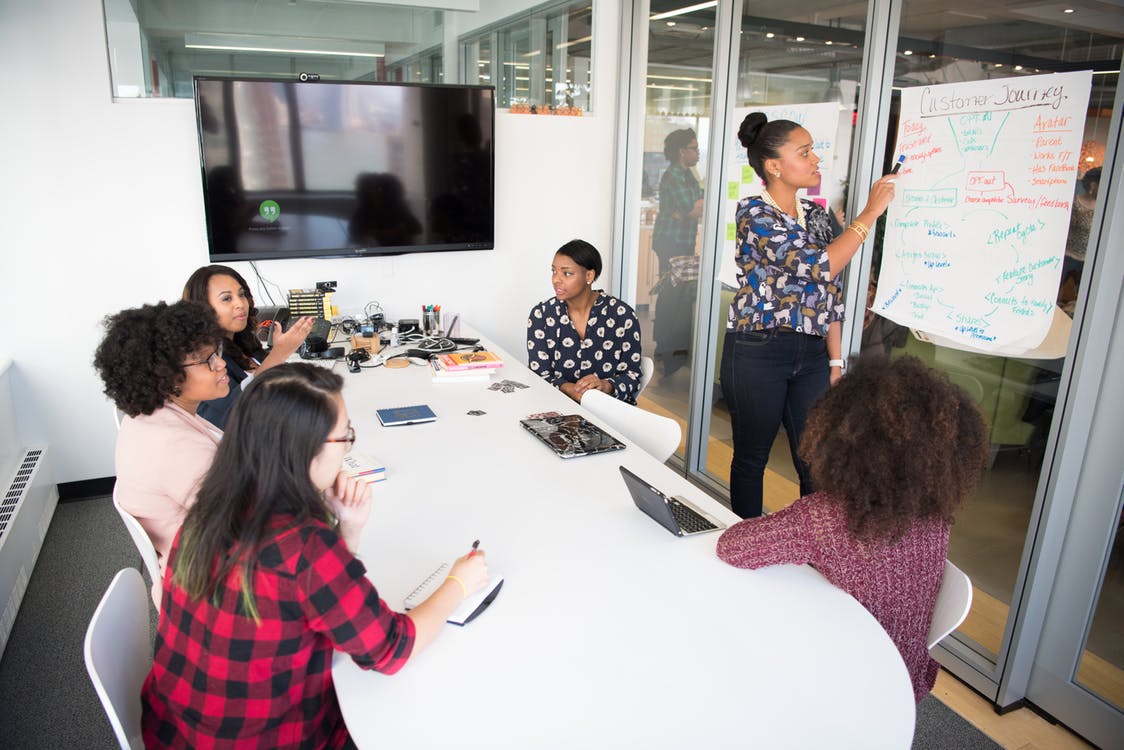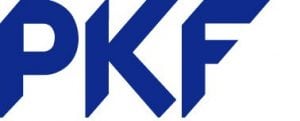We’re certainly in uncertain times at the moment but accountancy and finance talent is still in demand as employers seek candidates with specific technical skills and professional qualities. If you’re starting out in the accountancy and finance profession, rest assured that I anticipate there will be plenty of opportunities available which will help you to get your career in accountancy off to a great start.
For those beginning the search for your first accountancy role, firstly it is important to identify your key skills and competencies and then to ascertain which organisations and roles these would be best suited to. Do you have specialist industry knowledge or a passion for a niche area of finance gained from your studies? Or are you looking to gain broad experience and generalise your skills? Thinking about this as a first step should help you home in on a specific departmental function or indeed type of role to start researching.
 You should also consider career factors which are most important to you such as location, salary, benefits and workplace culture including flexible working or agile working hours. Certainly have a think about these things to help funnel your job search, but remember that most important is the desire and enthusiasm to work in the accounting and finance field, as showing passion for your choice of work should come through no matter what role you’ve applied to.
You should also consider career factors which are most important to you such as location, salary, benefits and workplace culture including flexible working or agile working hours. Certainly have a think about these things to help funnel your job search, but remember that most important is the desire and enthusiasm to work in the accounting and finance field, as showing passion for your choice of work should come through no matter what role you’ve applied to.
The Hays UK Salary & Recruiting Trends 2020 guide found that 50% of finance employers plan to hire this year, and 52% of finance employees plan to move jobs. Whether you are just starting out in the industry, returning after a break or looking to move up the ranks into a more senior role, here’s what you need to consider so you can stand out to those employers planning to hire in the year ahead.
Your CV still reigns supreme
Your CV is still your most important sales document, so make sure yours is completely up to date before embarking on your job search. The key things to include are your career experience, professional achievements and any qualifications that you already hold or are working towards which relate to the role you are applying to. If you do not have prior accountancy experience, highlight areas of your previous employment or studies that show your analytical ability, numeracy, attention to detail and communication skills to demonstrate the key characteristics accountancy employers are looking for. You can also include any voluntary or
extra-curricular activities too, as these will most likely bear relevance to a graduate or trainee job in finance. For example, team-working or the ability to work well in a team is a competency that can be developed and gained in any role or situation, it does not have to have been in a paid job.
It goes without saying that your CV needs to look professional and have no spelling or grammatical errors. Choosing a clear, simple font size and type will help, and ensure you get it proofread by friends and family. Your CV also needs to be specifically tailored to each individual role, so when submitting it with each application, ensure that you demonstrate all the required competencies as outlined in the job and person descriptions. You may not need to change your CV completely for each application but consider re-ordering the content so that the most relevant experience and skills specific and tailored to the job you are applying for are higher on the page and therefore the recruiter will read the most relevant first which can help you get selected for interview.
The importance of a personal brand
Smart jobseekers understand the value of building up their brand and raising their profile. Along with your CV, your professional online profiles are an integral element of your personal brand and can have a huge bearing on how recruiters and employers perceive you. Focus on your LinkedIn profile which should also be up-to-date and align with the information you have on your CV. Failure to do this might indicate poor attention to detail or an unfaithful representation of you as a candidate.
You can also use your LinkedIn account to showcase passion for your industry by joining relevant groups, posting frequently and updating your profile with professional achievements. Try platforms such as Instagram and Twitter to keep up with any prospective employers and gain insight into their culture. Social media is now an integral part of job searching and if used correctly, is a great asset and tool for job seekers.
Tackling the interview
 Typically the interview is the next step of your application if you are successful in the first instance. Building up to an interview can often feel overwhelming and it’s not unusual to feel nervous, even if you have experience of interviews before.
Typically the interview is the next step of your application if you are successful in the first instance. Building up to an interview can often feel overwhelming and it’s not unusual to feel nervous, even if you have experience of interviews before.
Whether or not you feel nervous, preparation is key to making a good impression at an interview. Start your preparation by researching the organisation that you are interviewing with. Check their website to learn about their service offerings, structure and recent news. It’s also helpful to know about their main competitors so you have some slightly broader industry knowledge.
Next, familiarise yourself with the requirements of the role so you can demonstrate your suitability. Highlight key words on the job specification and weave these into any answers you have prepared to make it clear that you understand what the role requires and how you think you are a match for this. Remember also to try and use language that you have seen in your research of the organisation’s website, without losing your own authentic voice of course.
Preparing and structuring your responses
Interviewers usually ask at least some competency-based questions which target a specific key skill or capability. These questions require you to discuss examples of where you have shown qualities outlined in the job description. As part of your preparation, you should have several relevant examples ready either from your studies or previous part time employment. To be a successful accountant, you need to be exceptionally organised and able to work to strict deadlines whilst having technical numeracy skills and developing communication and people skills. Therefore try to tailor your examples around these requirements and have a couple of examples up your sleeve for each main competency they are likely to explore.
A particularly useful tool to help you answer interview questions is the STAR (Situation, Task, Action, Result) acronym. Delivering your responses in this order will help you highlight the competency or skill that the interviewer is asking about. Most interviewers will be familiar with this structure, so don’t worry about your response feeling somewhat ordered. With practice and preparation, the ability to structure your answers correctly will become second nature, allowing you to concentrate on letting your personality and enthusiasm shine at interview. The most important tip for using the STAR technique is to ensure that you clearly outline the specific actions you personally took e.g. “I delivered a training session…” rather than the habitual “we delivered a training session…” which is the language we all often fall into.
Hold on to your professionalism throughout
Remaining calm and professional in your interview will give your interviewer an insight into how you would deal with pressure and show your potential to work well in a team. Be mindful of your body language; your posture, eye contact and gestures can show a lot about your confidence and how engaged you are, whether this is on a video interview or an actual face to face interview.
One of the biggest slip ups you can make is to not have any questions ready for the end of the interview. Prepare questions to ask at the end that demonstrate you have done your research and are genuinely interested in the job and organisation, as this will show that you are curious about the role. It’s also a useful opportunity to get across any final points which you may not have been asked about during the earlier part of the interview.
First (and last) impressions count
Do your best to create a positive first impression by arriving 5 to 10 minutes ahead of schedule. Plan ahead if you haven’t been to the location before and even do a trial run if necessary. Dress appropriately and remain polite and courteous to anyone you meet and greet your interviewer with a professional handshake and friendly smile. If you are unsure of the dress code, call ahead to confirm this, but smart business attire is always the best bet.
Finally, remember that your interview doesn’t end until you are out of the door and that the last 30 seconds of an interview are just as important as the first. Leave with a professional handshake, make eye contact and thank your interviewer for their time. After your interview, don’t forget to follow up with your recruitment consultant as soon as possible after the interview, to update them with your feedback and so you can receive any feedback your interviewer may have provided too.
Starting your new role
 Once you have gone through the various stages of the application and receive your job offer, give yourself a pat on the back and breathe a sigh of relief! Starting a new job can be one of the most exciting experiences of our professional lives. Even if you’re a little nervous, try to begin your first day confidently.
Once you have gone through the various stages of the application and receive your job offer, give yourself a pat on the back and breathe a sigh of relief! Starting a new job can be one of the most exciting experiences of our professional lives. Even if you’re a little nervous, try to begin your first day confidently.
Make a great impression when meeting your new colleagues by introducing yourself, maintaining eye contact and smiling. Remembering people’s names will also go a long way in those first few days and weeks at work, and a little note pad with a drawing of the desk layout so you can plot names in and have it as a prompt until you get to know everyone by sight, is a small tip. It is also vitally important not to be late on your first day, and where possible not late at all!
Be open minded from the start – forget about your experiences at your previous employers, good or bad, and get rid of any preconceived notions which stem from them. No two jobs will be the same, so approach your new role as a fresh start, and embrace the unknown.
Build your network from day one
Following on from the initial introductions, take the time and make an effort to get to know your colleagues in the upcoming days as this will pay off later. Try and meet each colleague individually, starting with those closest to where you are working. Take advantages of opportunities to socialise, whether it’s at work social events, or just being in the kitchen at the same time making lunch. Getting to know your colleagues will help you, as these are the people who can offer you guidance, answer your questions and help you to feel settled in your new environment.
Karen Young is a Director for Hays Accountancy & Finance in the UK. Hays Accountancy & Finance operates from nearly 100 offices, with over 400 consultants working with hundreds of employers to match talented finance professionals with the right organisation.






